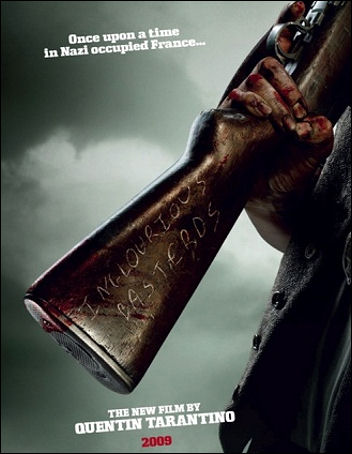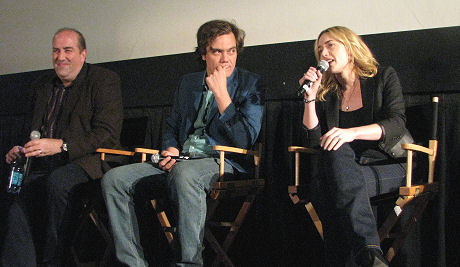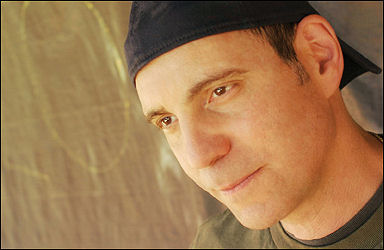I’m fundamentally flawed as a handicapper and Oscar-pool better because I can’t step back and say “this film or filmmaker will win even though I have problems with it/him/her.” If I have issues with anyone or anything, I can”t just look at the odds and predict victory. Except when the odds are so overwhelming there’s simply no other choice, as it is with Slumdog Millionaire winning the Best Picture Oscar two days and six hours from now.
Here we go anyway…
Best Picture: Slumdog Millionaire. Conflicted Feelings Factor: So-so to moderate as I’ve never truly felt this film is a major-league home run. It’s a solid double — maybe a triple at best. And I hate, hate, hate that guy who plays the game show announcer. I hate his suit, his haircut…everything about him.
Best Director: Slumdog‘s Danny Boyle. Conflicted Feelings Factor: Hardly present. Boyle is a good fellow, knows his stuff, he did a good job. This is his year, let well enough alone.
Best Actor: The Wrestler‘s Mickey Rourke. Conflicted Feelings Factor: Absent. If Sean Penn wins, we’ll all survive and a very fine performance will have been honored. But it won’t feel right.
Best Actress: The Reader‘s Kate Winslet. Conflicted Feelings Factor: See the piece I posted an hour ago. Either way, I’m ready to let this be Kate’s time. I think we all feel this way.
Best Supporting Actor: Heath Ledger, The Dark Knight. Conflicted Feelings Factor: Strong. I’d honestly rather see Michael Shannon win for Revolutionary Road, in part because he’s great in that film, and in part because he’s here. I was extremely pissed off when Heath did what he did to himself, accidentally or otherwise, and I guess I haven’t quite gotten beyond that.
Best Supporting Actress: Vicky Cristina Barcelona‘s Penelope Cruz. Conflicted Feelings Factor: I’d be very happy to see this go to Doubt‘s Viola Davis.
Best Adapted Screenplay: Slumdog Millionaire.
Best Original Screenplay: Andrew Stanton‘s WALL*E as an acknowledgement that it is and was somehow more than just the year’s best animated feature. Conflicted Feelings Factor: It would be lovely to see the prize go to Frozen River.
Best Art Direction: The Curious Case of Benjamin Button because it was well handled as far as it went, and Paramount at least needs those tech awards as a return for their $150 million investment.
Best Cinematography: Slumdog Millionaire, Anthony Dod Mantle.
Best Costume Design: The Curious Case of Benjamin Button. The rule of thumb is that any period film involving exotic ruffled duds tends to win on this score, which would point to The Duchess. I still say Button because it cost so much and people feel sorry for Paramount having shelled out so much and come up empty on the Best Picture front.
Best Film Editing: Slumdog Millionaire.
Best Makeup: The Curious Case of Benjamin Button.
Best Musical Score: Slumdog Millionaire.
Best Original Song: “Jai Ho” from Slumdog Millionaire.
Best Sound Editing: The Dark Knight. Compensation award.
Best Sound Mixing: The Dark Knight. Ditto.
Best Visual Effects: The Curious Case of Benjamin Button. No contest.
Best Animated Feature: WALL*E.
Best Foreign Language Feature: Waltz With Bashir.
Best Documenary Feature: Man on Wire.
Best Documentary Short: Dunno, clueless, pass.
Best Short Film (animated): La Maison en Petits Cubes.
Best Short Film (Live Action): Toyland. Holocaust factor, naturally.




